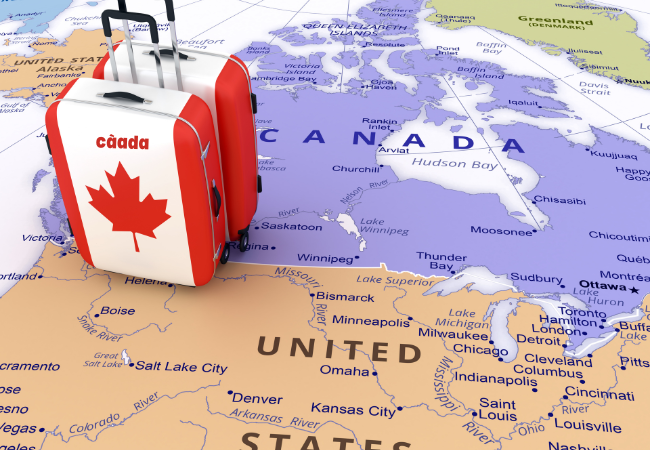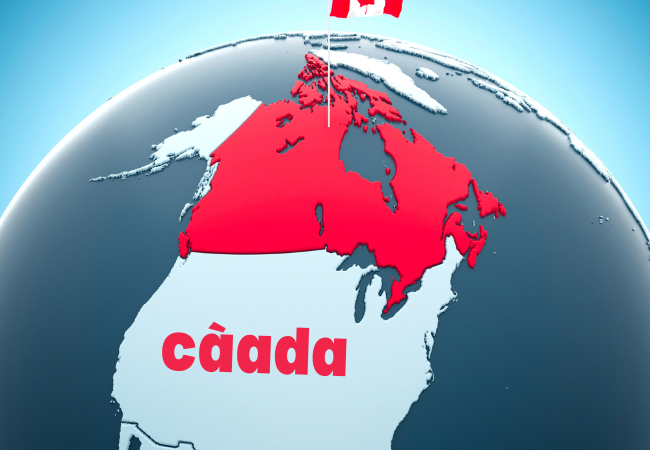Càada: A Comprehensive Overview

Geography of càada
Canada’s geography is as diverse as its culture. Stretching from the Atlantic Ocean in the east to the Pacific Ocean in the west, and extending northward into the Arctic, Canada’s physical features include vast forests, expansive prairies, and towering mountain ranges.
Physical Features Canada boasts a wide array of physical features. The Rocky Mountains run through British Columbia and Alberta, while the Great Plains stretch across central Canada. The Canadian Shield, a massive area of ancient rock, covers much of northern and central Canada, providing a unique landscape rich in minerals.
Climate The climate in Canada varies significantly by region. Coastal areas, such as British Columbia, enjoy a more temperate climate, while the central and northern regions experience harsher, colder weather. The southern parts of Canada, particularly near the Great Lakes, have milder winters and warm summers.
Regions Canada is divided into several distinct regions, each with its own unique characteristics. These include the Atlantic Provinces, Central Canada, the Prairie Provinces, the West Coast, and the Northern Territories. Each region offers different landscapes, climates, and cultural experiences.
History of Canada
The history of Canada is rich and complex, marked by the contributions of its indigenous peoples and the influences of European colonization.
Indigenous Peoples Indigenous peoples have lived in Canada for thousands of years. They developed rich cultures and societies long before European explorers arrived. Today, indigenous communities continue to play a vital role in Canada’s cultural and social fabric.
Colonization European colonization began in the late 15th century, with explorers such as John Cabot and Jacques Cartier claiming land for England and France. The fur trade became a major economic driver, leading to the establishment of settlements and trading posts.
Confederation Canada’s journey to confederation began in the mid-19th century. On July 1, 1867, the British North America Act united three colonies into the Dominion of Canada. Over time, more provinces and territories joined, shaping the country we know today.
Political Structure of càada
Canada’s political system is a federal parliamentary democracy and a constitutional monarchy, with Queen Elizabeth II as the head of state.
Government System The federal government is divided into three branches: the executive, the legislative, and the judicial. The Prime Minister, currently Justin Trudeau, leads the executive branch and is supported by the Cabinet.
Provinces and Territories Canada is comprised of ten provinces and three territories, each with its own government and varying degrees of legislative power. Provinces have more autonomy than territories, which are governed with more federal oversight.
Political Parties Canada’s political landscape is dominated by several key parties, including the Liberal Party, the Conservative Party, the New Democratic Party (NDP), and the Green Party. Each party represents different ideologies and policy priorities.
Economy of Canada
Canada boasts a highly developed economy, characterized by a mix of natural resources, manufacturing, and services.
Key Industries Major industries in Canada include natural resources (such as oil, gas, and minerals), manufacturing (especially automotive and aerospace), and services (particularly finance, healthcare, and education).
Trade Relations Canada’s economy is heavily reliant on trade, with the United States being its largest trading partner. The Canada-United States-Mexico Agreement (CUSMA) facilitates trade between these neighboring countries.
Economic Challenges Despite its strong economy, Canada faces challenges such as income inequality, housing affordability, and the need to transition to a more sustainable economic model.
Culture and Society in Canada
Canada is known for its multicultural society, where diversity is celebrated and protected by law.
Languages Canada is officially bilingual, with English and French as the official languages. French is predominantly spoken in Quebec, while English is the primary language in the rest of the country.
Traditions Canadian traditions are influenced by its diverse population, including indigenous customs, French and British heritage, and the practices of immigrants from around the world.
Arts Canada has a vibrant arts scene, encompassing literature, music, theater, and visual arts. Canadian artists and performers are recognized globally for their contributions to culture.
Canadian Education System
Canada’s education system is highly regarded, offering quality education from primary school through to post-secondary institutions.
Primary and Secondary Education Education in Canada is primarily the responsibility of the provinces and territories. It typically includes kindergarten to grade 12, with a focus on both academic and extracurricular development.
Higher Education Canada is home to some of the world’s top universities, including the University of Toronto, McGill University, and the University of British Columbia. These institutions attract students from around the globe.
Research and Development Canada invests significantly in research and development, fostering innovation in various fields such as technology, medicine, and environmental science.
Healthcare in Canada
Canada’s healthcare system is publicly funded, providing universal coverage to all residents.
Public Healthcare System The healthcare system, known as Medicare, is funded by taxes and administered by the provinces and territories. It covers essential medical services, but some services may require additional private insurance.
Health Statistics Canada boasts high life expectancy and low infant mortality rates, indicators of its robust healthcare system.
Challenges and Innovations The healthcare system faces challenges such as long wait times and a shortage of healthcare professionals. However, innovations in digital health and telemedicine are improving access to care.
Tourism in Canada
Tourism is a significant part of Canada’s economy, drawing millions of visitors each year.
Major Attractions Iconic attractions include Niagara Falls, Banff National Park, and the CN Tower in Toronto. These sites offer unique experiences and stunning vistas.
National Parks Canada’s national parks, such as Jasper and Gros Morne, provide opportunities for hiking, wildlife viewing, and camping in pristine natural settings.
Tourist Activities Visitors to Canada can enjoy a wide range of activities, from skiing in the Rockies to exploring vibrant cities like Vancouver and Montreal.
Wildlife in Canada
Canada’s diverse ecosystems are home to a wide variety of wildlife.
Native Species Species such as the moose, beaver, and Canadian lynx are iconic symbols of the country’s wildlife. Canada’s coastal waters are also rich with marine life, including whales and seals.
Conservation Efforts Canada places a strong emphasis on wildlife conservation, with numerous initiatives aimed at protecting endangered species and their habitats.
National Parks The national parks system plays a crucial role in preserving Canada’s natural heritage and providing safe habitats for wildlife.
Living in Canada
Canada is known for its high standard of living and excellent quality of life.
Quality of Life Factors contributing to Canada’s high quality of life include a strong healthcare system, quality education, and a clean environment.
Cost of Living The cost of living varies across the country, with cities like Toronto and Vancouver being more expensive than smaller towns and rural areas.
Major Cities Major cities such as Toronto, Montreal, and Vancouver are cultural and economic hubs, offering diverse opportunities and amenities.

Canadian Cuisine
Canadian cuisine reflects the country’s multicultural heritage, offering a wide variety of flavors and dishes.
Traditional Dishes Classic Canadian dishes include poutine, butter tarts, and tourtière. These foods reflect the country’s French and British roots.
Regional Specialties Each region has its own culinary specialties, such as Atlantic Canada’s seafood, Quebec’s maple syrup products, and Alberta’s beef.
Modern Culinary Scene Canada’s modern culinary scene is dynamic, with chefs incorporating global influences and local ingredients to create innovative dishes.
Sports in Canada
Sports play a significant role in Canadian culture, with hockey being particularly iconic.
Popular Sports In addition to hockey, sports like lacrosse, soccer, and basketball are widely played and enjoyed across the country.
Major Events Canada hosts numerous major sporting events, including the Canadian Grand Prix in Montreal and the Calgary Stampede.
Sports Infrastructure The country boasts excellent sports facilities, from community arenas to professional stadiums.
Transport in càada
Canada’s vast size makes transport infrastructure crucial for connectivity.
Public Transport Major cities have well-developed public transport systems, including buses, subways, and light rail.
Major Highways The Trans-Canada Highway is a key route, stretching from coast to coast and connecting major cities and regions.
Air Travel Canada’s major airports, such as Toronto Pearson and Vancouver International, serve as key hubs for domestic and international travel.
Environment and Sustainability in Canada
Canada is committed to environmental protection and sustainability.
Environmental Policies The country has implemented various policies to reduce carbon emissions, protect natural resources, and promote renewable energy.
Green Initiatives Initiatives such as waste reduction programs, sustainable forestry practices, and green building standards are widely adopted.
Climate Change Impact Canada is actively addressing the impacts of climate change, particularly in vulnerable regions like the Arctic.
Technology and Innovation in Canada
Canada is a global leader in technology and innovation, particularly in fields such as artificial intelligence and clean technology.
Key Innovations Canadian innovations include developments in AI, biotech, and renewable energy technologies.
Tech Hubs Cities like Toronto, Vancouver, and Montreal are emerging as major tech hubs, attracting startups and established tech companies.
Government Support The government provides substantial support for research and innovation through grants, tax incentives, and strategic initiatives.
Famous Canadians
Canada has produced many notable personalities who have made significant contributions in various fields.
Notable Personalities in Various Fields These include musicians like Celine Dion, actors like Ryan Reynolds, and scientists like Donna Strickland, showcasing the country’s talent and influence.
Indigenous Peoples of Canada
The indigenous peoples of Canada have a rich cultural heritage and continue to play a vital role in the nation’s identity.
History Indigenous peoples have inhabited Canada for thousands of years, developing diverse cultures and societies.
Culture Indigenous cultures are celebrated through art, music, and traditional practices, contributing significantly to Canada’s cultural landscape.
Modern Issues Contemporary issues facing indigenous communities include land rights, access to education and healthcare, and social justice.
Festivals and Events in Canada
Canada’s festivals and events reflect its diverse culture and vibrant community life.
Major Festivals Major festivals include the Calgary Stampede, the Toronto International Film Festival, and the Montreal Jazz Festival.
Cultural Events Cultural events such as Caribana in Toronto and the Quebec Winter Carnival showcase the country’s multicultural heritage.
Public Holidays Public holidays like Canada Day and Thanksgiving are celebrated with various traditions and community activities.
Legal System of càada
Canada’s legal system is based on English common law, with influences from French civil law in Quebec.
Structure The legal system is divided into federal and provincial courts, each with specific jurisdictions and responsibilities.
Major Laws Key laws include the Constitution Act, which outlines the country’s legal framework, and the Charter of Rights and Freedoms, which guarantees fundamental rights to all citizens.
Judicial System The judiciary is independent and plays a crucial role in interpreting and upholding the law.
Canada in International Relations
Canada is an active participant in international affairs, promoting peace, security, and human rights.
Diplomatic Relations Canada maintains diplomatic relations with countries around the world, participating in global organizations such as the United Nations and NATO.
Membership in International Organizations Canada is a member of numerous international organizations, including the G7, the Commonwealth, and the World Trade Organization.
Global Impact Canada’s foreign policy emphasizes multilateralism, development assistance, and environmental sustainability.
Canada’s Role in Global Issues
Canada is involved in addressing various global issues, from environmental protection to human rights advocacy.
Environmental Protection Canada is committed to international efforts to combat climate change and protect biodiversity.
Human Rights The country advocates for human rights globally, supporting initiatives to end discrimination and promote equality.
Peacekeeping Canada has a long history of contributing to international peacekeeping missions, helping to maintain global stability.
Challenges Facing Canada
Despite its many strengths, Canada faces several significant challenges.
Economic Issues These include managing economic growth, addressing income inequality, and ensuring sustainable development.
Environmental Concerns Environmental challenges such as climate change, resource management, and pollution require ongoing attention and action.
Social Challenges Social issues include reconciliation with indigenous peoples, healthcare accessibility, and housing affordability.
Education Opportunities for International Students
Canada is a popular destination for international students due to its high-quality education system and welcoming environment.
Admission Process The admission process for international students involves meeting academic requirements, obtaining visas, and securing funding.
Scholarships Various scholarships and financial aid options are available to support international students in their studies.
Living as a Student International students in Canada enjoy a vibrant campus life, cultural diversity, and opportunities for post-graduation employment.
Business Environment in Canada
Canada offers a favorable environment for business, characterized by stability, transparency, and innovation.
Starting a Business Starting a business in Canada involves registering the company, complying with regulations, and accessing support programs.
Major Industries Key industries include natural resources, technology, finance, and healthcare, providing diverse business opportunities.
Business Culture Canadian business culture values inclusivity, collaboration, and social responsibility.
Employment in Canada
Canada’s job market is diverse and offers opportunities in various sectors.
Job Market The job market in Canada is strong, with demand for skilled workers in fields such as technology, healthcare, and engineering.
Employment Laws Employment laws in Canada protect workers’ rights, ensuring fair wages, safe working conditions, and anti-discrimination measures.
Work Culture Canadian work culture emphasizes work-life balance, professional development, and inclusivity.
Canada’s Natural Resources
Canada is rich in natural resources, which play a significant role in its economy.
Major Resources Major resources include oil, natural gas, minerals, and timber. These resources are vital to Canada’s economic prosperity.
Resource Management Sustainable resource management practices are essential to balance economic benefits with environmental protection.
Economic Impact The exploitation and export of natural resources contribute significantly to Canada’s GDP and trade balance.
Social Services in Canada
Canada offers a comprehensive range of social services to support its residents.
Welfare Programs Welfare programs provide financial assistance and support to individuals and families in need.
Support Systems Support systems include healthcare, education, housing assistance, and employment services, ensuring a high quality of life for all citizens.
Community Services Community services, such as libraries, recreation centers, and public transit, enhance the well-being of Canadian communities.
Future of Canada
Canada’s future is shaped by its commitment to innovation, sustainability, and social progress.
Economic Prospects Economic prospects are positive, with growth expected in sectors such as technology, renewable energy, and healthcare.
Technological Advancements Technological advancements will continue to drive progress, particularly in AI, biotechnology, and clean energy.
Societal Changes Societal changes include increasing diversity, urbanization, and evolving social norms, all contributing to a dynamic future for Canada.
Conclusion
Canada is a country of immense beauty, diversity, and opportunity. From its stunning natural landscapes to its vibrant cities, Canada offers a high quality of life and a welcoming environment for people from all walks of life. With a strong commitment to innovation, sustainability, and social justice, Canada is poised to continue thriving in the global arena.
FAQs
What is the official language of Canada? Canada has two official languages: English and French. French is predominantly spoken in Quebec, while English is the primary language in the rest of the country.
How is the healthcare system in Canada? Canada has a publicly funded healthcare system known as Medicare, which provides universal coverage for essential medical services to all residents.
What are some major tourist attractions in Canada? Major tourist attractions in Canada include Niagara Falls, Banff National Park, and the CN Tower in Toronto.
How does Canada’s education system work? Canada’s education system includes primary and secondary education, followed by post-secondary institutions such as universities and colleges. The system is known for its high quality and inclusivity.
What are the major industries in Canada’s economy? Key industries in Canada’s economy include natural resources (oil, gas, minerals), manufacturing (automotive, aerospace), and services (finance, healthcare, education).
What role does Canada play in international relations? Canada is an active participant in international affairs, promoting peace, security, and human rights. It is a member of global organizations such as the United Nations and NATO.


